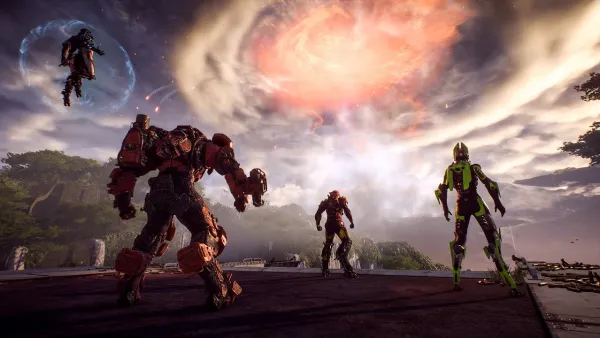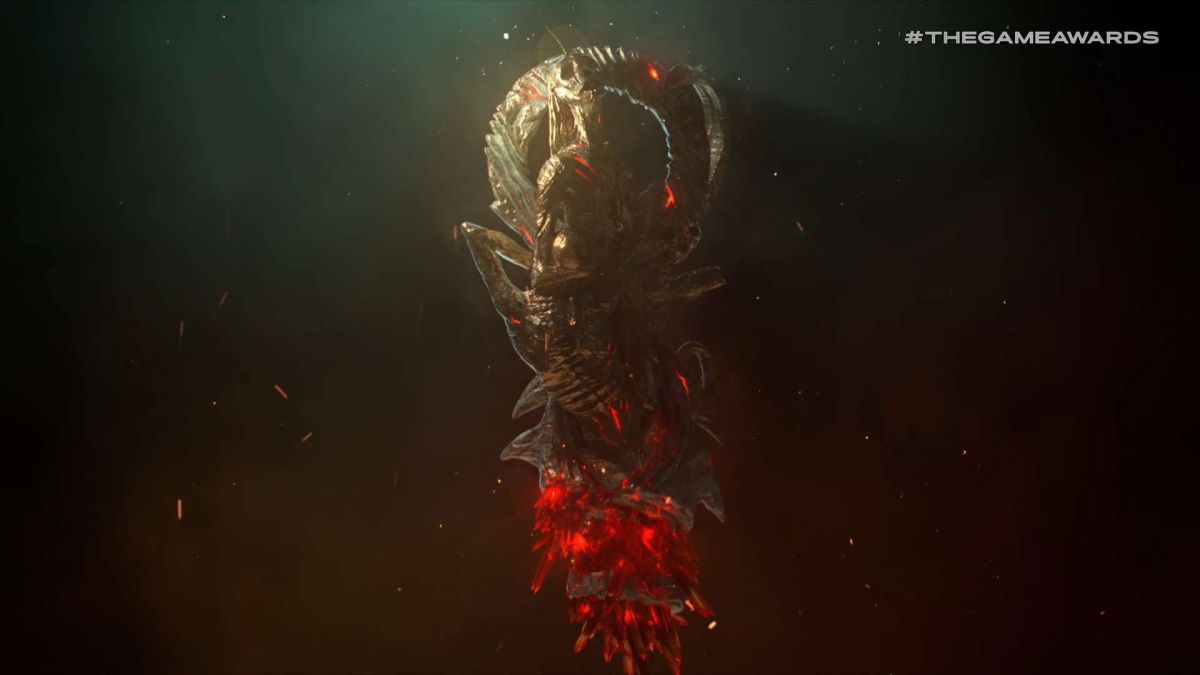Anthem made a big impression at the Game Awards last year. Following a pledge from BioWare’s Casey Hudson story trailer that gave us our first real glimpse of its lore, universe, and wider narrative, a dramatic choir performance closed out the presentation. It was a real spectacle.
Led by the game’s talented composer, Sarah Schachner, who herself played along with a space-age-looking synthesizer and vocoder, the occasion had a sense of drama that had me believing Anthem might not be just another generic looter-shooter, that it could potentially be something truly special.
BioWare, it seemed, were serious about continuing the quality storytelling it’s best known for with Anthem. The challenge was whether they could be the first developer to successfully weave a compelling narrative into the shared-world-shooter template.
Unfortunately, as it turns out, they weren’t up to the task.
More than that, I’d go so far as to suggest that all the effort BioWare took to go out of their way promising substance to the Anthem’s story, lore, and world-building was all just PR spiel. It had to have been, because there’s absolutely no way the team behind the acclaimed Mass Effect and Dragon Age series could possibly have believed Anthem’s story was up to scratch.
The plot isn’t just derivative or boring, it’s nonsensical and totally disjointed. The narrative is in place only to give some sort of vague context to the gameplay experience.
Of course, the fact that a generic multiplayer shooter like Anthem has a laughably poor story that takes a backseat to gameplay isn’t especially surprising or upsetting. It’s a hallmark of the genre at this point. What makes it so unsavory is that decision-makers behind Anthem’s marketing campaign leveraged BioWare’s esteemed reputation as storytellers to convince us that Anthem did, in fact, place the same emphasis on storytelling as its previous games.
It’s all very worrying, both the principle of a AAA studio exaggerating its development priorities, and the future of BioWare’s other projects moving forward in general. I’m particularly concerned about Dragon Age, a series that I’ve long adored and have been waiting eagerly for its next installment since completing Inquisition four or so years ago.

It’s not that I think Anthem’s shoddy story and botched launch now suddenly make BioWare as a studio incapable of making a great game. Of course, it doesn’t. Anthem and Dragon Age are totally different beasts, they’re opposite genres and comprised of entirely separate game design.
The issue is that I don’t see the contemporary AAA scene as being the right environment for BioWare to succeed with a massive single-player RPG. Not least one that’s a hugely anticipated follow-up to a beloved series, which really needs plenty of time in development to do it justice.
I’m not going to start finger-pointing at EA, but there are corporate expectations that have shifted and tightened since the launch of Inquisition. And then Mass Effect Andromeda didn’t do very well, either, which hasn’t helped the case for conventional sort of gaming experiences.
Publishers are all about managing risk, and just like Andromeda, Dragon Age IV carries a weight of expectation on its shoulders. I worry that it isn’t going to be given the time it needs to simmer, that it might get blown off course as men in suits get anxious about the diminishing returns of a project that isn’t delivered in timely fashion.
Anthem is a case study of what happens when you take a developer outside its comfort zone and strangle their ability to showcase what they do best. It’s yet another example that any game, regardless of genre, shouldn’t launch before it’s ready. And the build-up to Anthem’s launch is a reminder that publishers and developers will say whatever they must to preserve a game’s chances of success, whether it’s exaggerated or not.
I know BioWare can do so much better than Anthem given the chance. As I’ve already written in a previous article, my hope is that there’s a silver lining to Anthem’s failures in that it forces EA and the industry, in general, to walk back to the whole “launch now, fix later” mentality. Here’s hoping that Dragon Age IV is given the room it needs to gestate and successfully carry over the baton in the manner every fan is desperate to see.
I thought they could succeed where games like Destiny and The Division failed. I still do, actually. But they haven’t pulled it off in this “first version” of Anthem — which I say quite deliberately because Anthem will undoubtedly be a completely different game in six months time, and quite possibly a much better one. And then there will probably be an even better sequel that might edge closer to pulling off the aforementioned tricky task.













Updated: Mar 7, 2019 03:38 pm